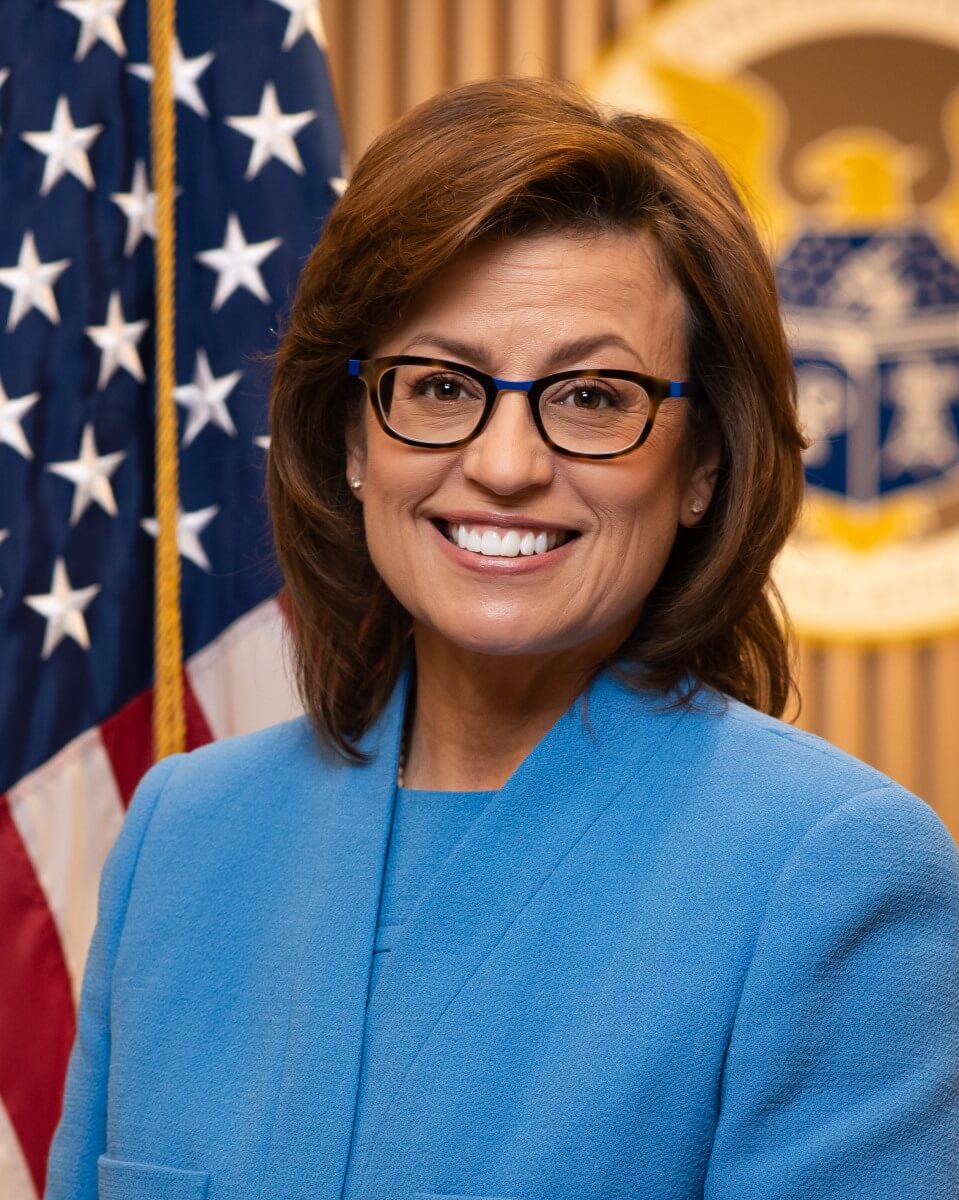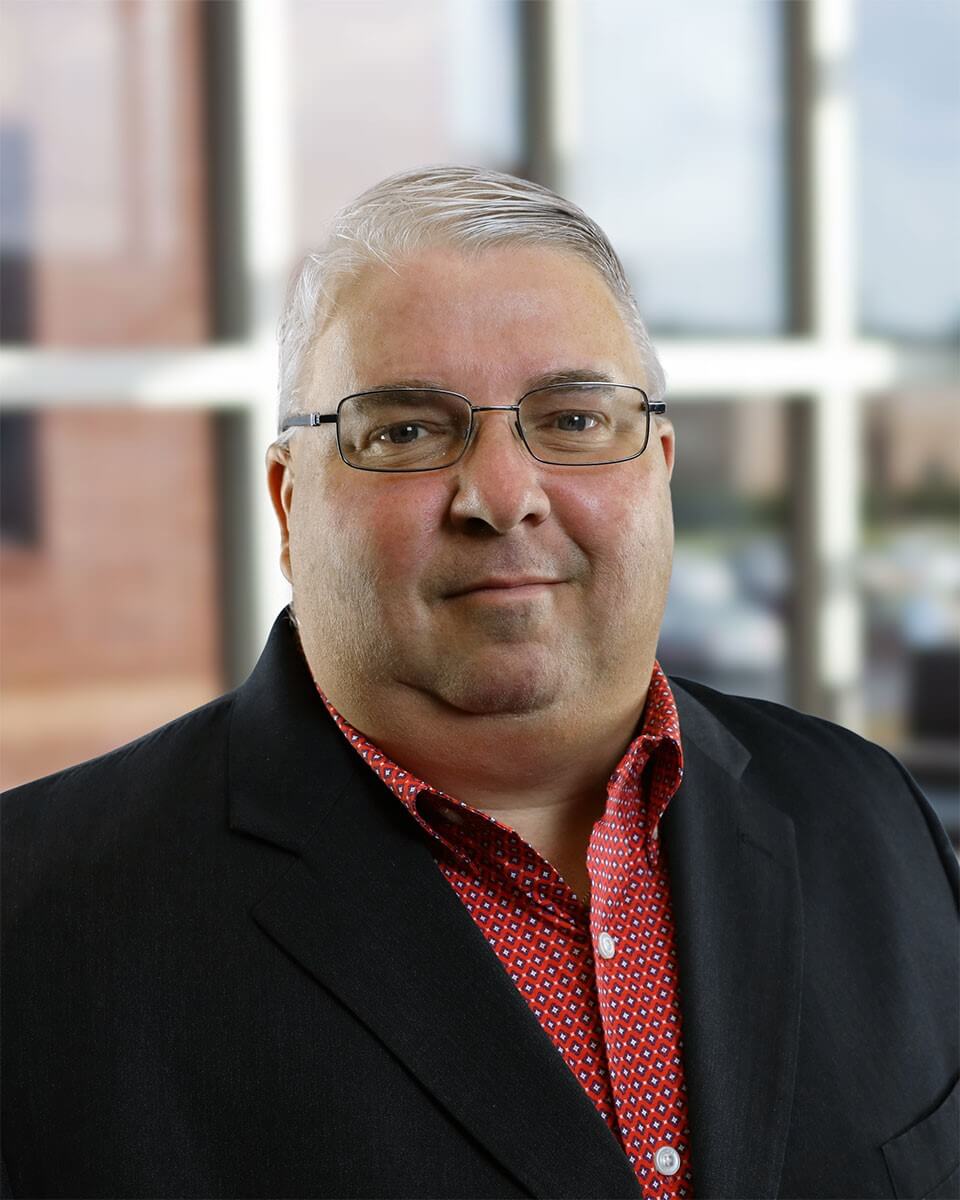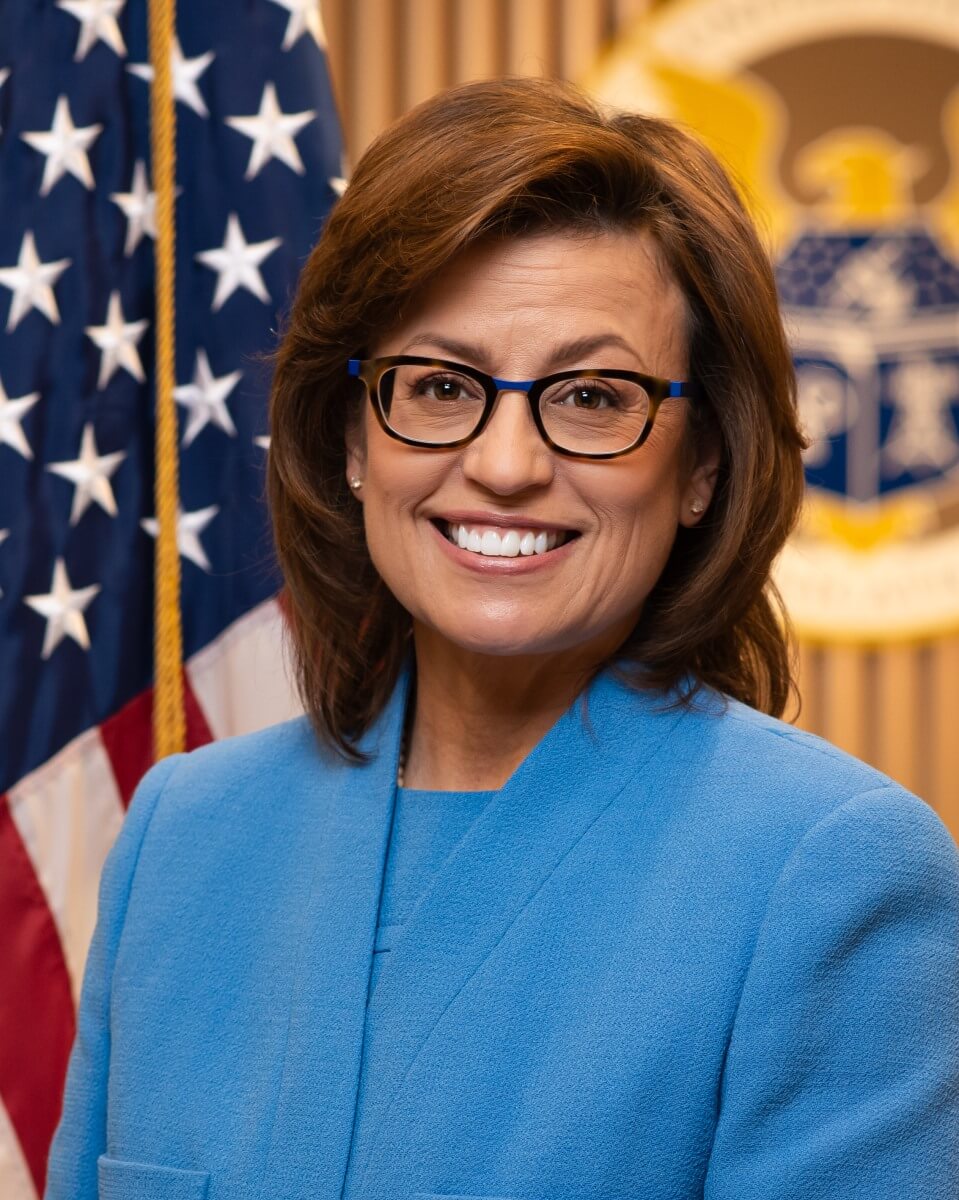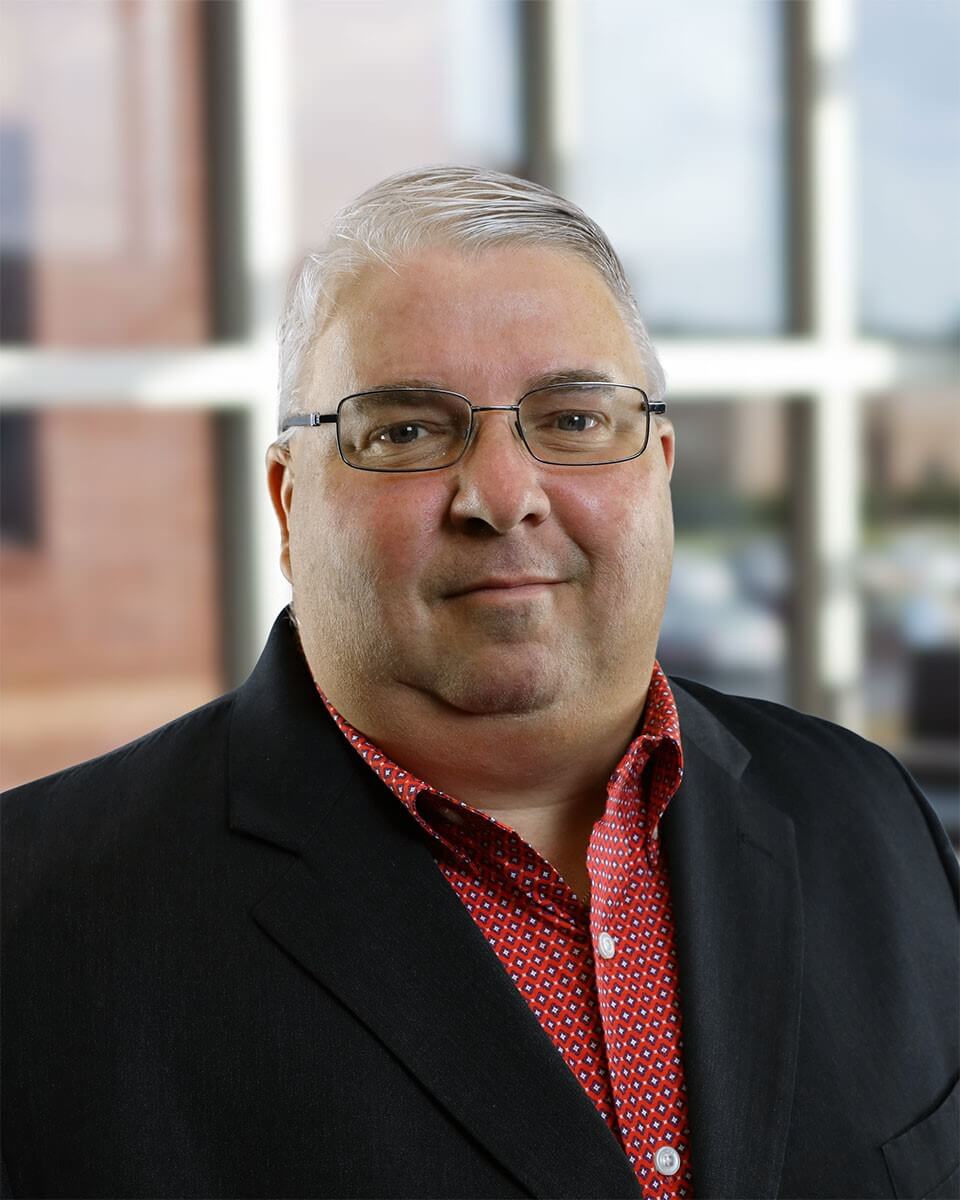
Full Agenda
12:00 PM - 1:00 PM
Insights Track Lunch *Add on- Salon 2
The Insights Track is an exclusive add-on offering to AnchorNets 2024. The Insights Track includes a lunch followed by conversations with broadband policy thought leaders, and closes with an intimate dinner at a local restaurants.
1:00 PM - 3:45 PM
Insights Track- Salon 2
The Insights Track is an exclusive add-on offering to AnchorNets 2024. The Insights Track includes a lunch followed by conversations with broadband policy thought leaders, and closes with an intimate dinner at a local restaurants.
1:00 PM - 2:15 PM
Pre-Conference Workshop: Insights and Requirements to Apply for the FCC's Cybersecurity Pilot Program *Add on- Salons 3-4
This year, the FCC adopted a three year, $200M Schools and Libraries Cybersecurity Pilot Program. If your school or library is planning to apply to participate, join us for a moderated question and answer session with industry experts who will delve into critical program requirements and insights. This is a separately ticketed event. Remote access is available if you are unable to attend in person.
2:45 PM - 4:00 PM
Pre-Conference Workshop: Preparing for the FCC's Hotspot Lending Initiative at Your School or Library *Add on- Salons 3-4
This year, the FCC adopted a Hotspot Lending Initiative as part of E-rate program funding. If your school or library is planning to participate, join us for a moderated question and answer session with industry experts who will delve into critical program requirements and insights. This is a separately ticketed event. Remote access is available if you are unable to attend in person.
4:00 PM - 4:15 PM
Networking Break
4:15 PM - 5:00 PM
Women in Telecom Plenary Session- Salon 3-4
This year at AnchorNets, SHLB wants to celebrate women in telecom! Please join us for a plenary session that will highlight three talented women working in the broadband space: Jordan Arnold, Elizabeth Cuttner, and Susannah Spellman. Our speakers will participate in a moderated Q&A to discuss their insights and experiences. Afterwards, end your evening by enjoying fellowship with other prominent women working in telecom during the reception to follow. Drinks (one free drink ticket per person provided) and light appetizers will be available.
5:00 PM - 5:45 PM
Speed Networking- Salons 5-6
5:45 PM - 7:00 PM
Women in Telecom Networking Reception- Foyer
7:00 PM - 9:00 PM
Insights Track Dine-Around *Add on- Dine Around
The Insights Track is an exclusive add-on offering to AnchorNets 2024. The Insights Track includes a lunch followed by conversations with broadband policy thought leaders, and closes with an intimate dinner at a local restaurants.
8:00 AM - 8:45 PM
Breakfast- Foyer
9:30 AM - 9:45 AM
Networking Break
9:45 AM - 11:00 AM
The Future is Universal: Inclusive Changes to E-rate- Salon 1
Join an expert panel for a moderated discussion of recent and proposed changes to the E-rate program concerning Tribal libraries, cybersecurity, and hotspot lending. E-rate, which has provided discounts on libraries’ internet access and networking equipment for over two decades, must become more flexible to address equitable access for unserved and underserved communities. Panelists will provide various perspectives on how these program changes affect schools and libraries.
9:45 AM - 11:00 AM
How will States use BEAD funding to maximize connectivity for all?- Salon 2
State broadband offices are now working through the challenge process to determine where to spend their BEAD dollars. This year through next year, states will begin to award grant funds to the broadband service providers to bring broadband service to all. But states still face a number of important questions and challenges. Will the challenge process increase or decrease the number of locations that will receive BEAD funding? Will states allow broadband service providers to set the project area boundaries for eligible areas? Will states and NTIA address pole attachment, permitting and rights-of-way issues? What will their BEAD grant programs look like in execution? And how will anchor institutions be involved in these build-out plans to unserved and underserved locations? This panel will be moderated and led by Scott D. Woods, President of Public-Private Partnerships at Ready.Net, which is helping several states work through many of these issues and challenges.
9:45 AM - 11:00 AM
Indigenizing the Internet and how to bring broadband to tribal communities- Salon 5
Tribal access to broadband internet lags behind the rest of the country. However, two recent appropriations totaling $3 billion for the new Tribal Broadband Connectivity Program (TBCP) provided the National Telecommunications and Information Administration (NTIA) with an opportunity to help increase tribal access to broadband. Tribes across the country are taking advantage of the NTIA grants to build out broadband, with outside partners, or internally, by developing tribal ISPs. But what does it mean to bring broadband access to tribal lands? What are the key advantages—and drawbacks—that tribal communities consider when bringing the Internet inside tribal communities? How should outside partners who want to support tribal efforts, understand the balance of value versus risks to community integrity? What are the tribal priorities for connectivity?
9:45 AM - 11:00 AM
Rural Health Care Workshop: USAC Listening Session - Salon 6
Step into a dynamic workshop that brings together SHLB members and USAC for a comprehensive exploration of the Rural Health Care program. This session begins with updates from USAC who will outline recent developments and upcoming changes that directly impact participants, followed by a moderated Question and Answer format to exchange transformative ideas and address pressing concerns impacting rural healthcare funding and application processing.
11:00 AM - 11:15 AM
Networking Break
11:15 AM - 12:15 PM
E-rate Fiber Success Stories- Salon 1
In 2014, the FCC modernized the E-rate program to encourage greater fiber build-out. Despite claims to the contrary, those reforms provided an enormous boost to school and library connectivity without busting the E-rate budget. This panel will highlight successful fiber build projects for anchor institutions, will respond to Congressional appeals to stop "over-building" and provide lessons learned for the BEAD program.
11:15 AM - 12:15 PM
Empowering Communities: Unpacking the Digital Equity Act Grant Programs- Salon 2
The Digital Equity Act grant programs represent a historic investment in addressing digital disparities across the United States. This panel session will bring together key stakeholders from the National Telecommunications and Information Administration (NTIA) and leading national organizations to explore how these grants can help bridge the digital divide. Attendees will gain insights into the grant application process, eligible projects, and strategies for leveraging these funds to achieve digital equity in their communities.
11:15 AM - 12:15 PM
Wireless Success Stories and the Technology Driving Them- Salon 5
In an era where digital connectivity is a fundamental necessity, fixed wireless technology is emerging as a vital solution for bridging the digital divide. This panel session will delve into the transformative potential of fixed wireless technology in providing reliable and high-speed internet access to underserved and unserved communities. The session features two compelling case studies showcasing the practical application of the technology to connect city residents in Cleveland and unserved students in East Moline, Illinois.
11:15 AM - 12:15 PM
Understanding and Navigating Audits for Rural Health Care and E-rate Participants- Salon 6
The Rural Health Care and E-rate programs offer essential funding support to connect healthcare clinics, schools, libraries, and the communities they serve with robust broadband networks. While these federal initiatives are critical for applicants, adherence to FCC rules is crucial and USAC may conduct audits to verify compliance with funding requests, making understanding and preparing for audits essential. This session will explore the intricacies of USAC audits - who manages them, what to expect during the process, and best practices for your organization. Whether you are a current participant or other stakeholder in the RHC or E-rate programs, this session equips you with essential knowledge to safeguard program funding and optimize broadband connectivity initiatives for the benefit of your community.
12:15 PM - 1:00 PM
Lunch- Salons 3-4
1:00 PM - 1:30 PM
Commissioner Anna Gomez and Commissioner Mignon Clyburn
Fireside Chat Plenary Session- Salons 3-4
1:30 PM - 1:45 PM
Networking Break
1:45 PM - 2:45 PM
Open Access Broadband Networks: Are they the Future? - Salon 1
The open access model of broadband deployment is gaining traction. While UTOPIA was once seen as a unique case, commercial companies are seeing great value in providing wholesale service while encouraging multiple retail providers to serve customers. When and where does an open access model make sense? How many BEAD projects will use open access? Are open access projects constrained to Middle Mile projects, or can last mile projects be viable as well? And what benefits does open access provide to anchor institutions and their communities? This session will provide insight into the partnerships and economic models that can drive successful projects.
1:45 PM - 2:45 PM
Success Stories from the Connecting Minority Communities Pilot Program - Salon 2
Through the $268 million Connecting Minority Communities (CMC) Pilot Program, NTIA directly addresses the lack of Internet access, connectivity, adoption, and equity at our nation’s Historically Black Colleges and Universities (HBCUs), Tribal Colleges and Universities (TCUs), and Minority-Serving Institutions (MSIs), and in census tracts with high levels of poverty within their surrounding anchor communities. The CMC Pilot program seeks to expand educational instruction and remote learning opportunities, spur economic development, and create opportunities for employment and entrepreneurship, This panel, let by Jon Gant, DIrector of the program, will provide detailed case studies of successful CMC programs and discuss the prospects for more Congressional funding once the pilot program concludes
1:45 PM - 2:45 PM
Cybersecurity for Healthcare Networks and Opportunities for Positive Impact - Salon 5
2023 proved to be a most impactful year for Cybersecurity breaches in the healthcare space and 2024 looks to be much the same. Faced with an increasing risk of cyber threats, healthcare providers have to be on the forefront securing network environments to ensure patient safety and seamless operations. Join SHLB members for an in depth discussion about the current state of cybersecurity threats and opportunities to secure healthcare networks and protect patients in this new era
1:45 PM - 4:00 PM
E-Rate Workshop: USAC Listening Session and "Enhancing the E-rate Program: Collaborative Insights and Recommendations for the Next Budget Cycle." - Salon 6
Join us for an engaging moderated Question and Answer session that brings together SHLB members and USAC representatives to delve into the latest programmatic updates, exchange innovative ideas, and address critical concerns surrounding the E-rate program. The session will commence with an overview of recent E-rate developments from USAC, followed by a moderated question and answer session that will foster a direct dialogue on implementation challenges and future directions.
Following the Q&A segment, a diverse panel of E-rate program participants and experts will take the stage to workshop recommendations aimed at improving and streamlining the next five-year category 2 budget cycle for schools and libraries. Attendees can expect a dynamic discussion that promises valuable insights, practical strategies, and innovative proposals for optimizing program efficiency and effectiveness.
2:45 PM - 3:00 PM
Networking Break
3:00 PM - 4:00 PM
After We Flip the Switch: RHC Funding to Support Growing Networks - Salon 1
A diverse panel of RHC program participants and experts will share their firsthand experiences and success stories in leveraging program funding to enhance their network infrastructures. From securing initial funding to the transformative moment of "flipping the network switch," panelists will illuminate the practical steps, challenges overcome, and outcomes achieved in expanding broadband access and healthcare services across rural communities.
3:00 PM - 4:00 PM
Leading the Charge: Countywide Innovative and Equity Best Practices for Digital Inclusion- Salon 2
County governments nationwide are leading the charge in advancing digital equity with dedicated full-time staff to bridge the digital divide. This session spotlights County-level digital equity leaders who are trailblazing the way in addressing key barriers, challenges, and gaps. Discover best practices, tools, and resources for creating equitable and inclusive digital equity ecosystems. Explore sustainable strategies for building strong coalitions and partnerships across sectors, driving meaningful progress toward digital equity.
3:00 PM - 4:00 PM
Reaching the Unserved: Leveraging Local Partnerships for Statewide Broadband Expansion
As the country works toward internet for all, deploying billions of BEAD funding to reach this goal, unique community-centric partnerships will play a key role in the success of this effort. MCNC, one of the country’s oldest research and education networks, and Fybe, a wholly-owned subsidiary of Roanoke Cooperative are spearheading an innovative new collaboration - known as eNCore - in North Carolina working with broadband providers, statewide electric cooperatives and local governments to bring broadband to the overlooked, unserved and underserved areas while reducing the burden on government. This session tells the story of how MCNC and collaborators are working together to meet the varying needs of communities across the state, sharing insights on forming these partnerships, the obstacles encountered along the way, and other lessons learned in pursuit of access and affordability for all.
4:00 PM - 4:15 PM
Networking Break
4:15 PM - 5:00 PM
E-rate Meet and Greet- Skyview
4:15 PM - 5:00 PM
SHLB Member Meeting (Members Only)- Salons 3-4
5:00 PM - 6:30 PM
Anchors Rock! Reception- Skyview
Join us for food, drinks, and networking! Sponsored by Zayo.

6:30 PM - 8:30 PM
SHLB Board Dinner (Invite Only)- Pentagon
8:00 AM - 8:30 AM
Breakfast- Foyer
9:15 AM - 9:30 AM
Networking Break
9:30 AM - 10:45 AM
Next Gen Firewalls and Beyond: What Do Schools and Libraries Need to Protect Their Networks? - Salon 1
 |
 |
9:30 AM - 10:45 AM
Connecting Communities: How Black Church Leaders Are Driving Digital Equity - Salon 2
Although the ACP has formally ended, stories abound of the fantastic work done to mobilize community leaders and close the digital divide. The work of the Black Churches 4 Digital Equity (BC4DE) Coalition is one inspiring story. Among its efforts, this coalition of Black church and nonprofit leaders drove ACP enrollments through a Day of Action campaign across 15 cities in 13 states and recently launched the 2024 National Juneteenth Digital Equity Bible Study. Hear how church leaders came together to embrace digital equity goals, the challenges and lessons learned in mobilizing at scale, and how they are continuing to make an impact in the post-ACP era
 |
 |
||||
| Ana Gomex | Dave Irek |
9:30 AM - 10:45 AM
Research and Education Networks: Your Partners in State and Local Infrastructure and Digital Equity Projects - Salon 5
Learn how four state research and education networks (RENs) have partnered with state and local governments, ISPs, community organizations, and tribes to leverage RENs’ expertise to advance digital equity and transformational infrastructure projects. Hear how Link Oregon sponsored a crowdsourced broadband mapping initiative (Faster Internet Oregon), co-founded the Oregon Broadband Equity Coalition, and partnered with Oregon and other Columbia River Tribes on broadband summits. OSHEAN leveraged funding to run fiber and provide internet services to an isolated island community and several low-income public housing authorities in Rhode Island. Merit Network is finalizing an upgrade of its optical network across its extensive 4,000+ miles of fiber optic infrastructure in Michigan. OARnet collaborated with private sector partners to implement connectivity improvements for community anchor institutions in Ohio, upgrading the K-12 Information Technology Centers (ITCs) and Large Urban school districts to 100G and securing minimum 10G last-mile connections for all connected institutions of higher education.
9:30 AM - 10:45 AM
Judicial Jiu-jitsu - Update on Federal Broadband Litigation - Salon 6
Court challenges to the nation's broadband policies are being filed left and right. The Fifth Circuit Court of Appeals found the Universal Service Fund unconstitutional, and an appeal to the Supreme Court is in the works. The FCC's school bus Wi-Fi decision and net neutrality decision are also under appeal, as is the New York state broadband law, and an appeal of the FCC's E-rate hotspot lending decision would not be surprising. Rulings on these cases will depend on a variety of factors, including how courts interpret the Supreme Court's Loper Bright decision that eliminated Chevron deference to the federal agencies. This panel of attorneys will help attendees navigate these twists and turns and provide an analysis of possible outcomes.
10:45 AM - 11:00 AM
Networking Break
11:00 AM - 12:00 PM
The Future of the USF: Round 3 - Salon 1
The Universal Service Fund (USF) is a $9 billion FCC program that helps American communities, schools, libraries and rural consumers connect to affordable voice and broadband services. But the program faces some huge challenges, and also opportunities. This panel will review the overall state of the USF, including a discussion of how to integrate the ACP program into the USF to provide long-term connectivity, and explore how to repair the broken contribution mechanism that funds the program. The panel will also review Congressional proposals to update the program, and the political pressures that may influence long-run reform.
11:00 AM - 12:00 PM
Breaking Barriers: Championing Digital Equity for Black Women and Women of Color - Salon 2
Join us for an insightful discussion led by Sista's 4 Digital Equity as we highlight the trailblazing efforts of Black women and women of color who are driving digital equity initiatives at local, state, and national levels. This panel will explore the unique challenges and opportunities in the digital equity landscape, focusing on both the multifaceted barriers and the achievements of these women. Additionally, we will highlight the importance of comprehensive support systems needed for them to thrive in their pursuit of digital equity.
11:00 AM - 12:00 PM
Innovative Rural Anchors: A Texas Roundtable on Community-Minded Broadband - Salon 5
This session showcases the work of rural anchors in Texas pioneering new ways to meet community needs. We’ll share the operating conditions, policy opportunities, and flexible tools they’re using to take full advantage of broadband for their communities.
11:00 AM - 12:00 PM
AI for education - Exploring research, trends, and resources on the use of AI in education- Salon 6
Every day, there's news on the latest benefits and concerns around the use of AI. For many community members, their community anchors will be a critical source for training, AI literacy support, and advanced uses of AI. Join our panelists as they discuss the trends, guidance, and current research exploring AI to support education. n
1:45 PM - 3:30 PM
Reimagining Connectivity Workshop: Establishing Key Principles to Guide Universal Service Fund Reform (Members Only)
In an era of rapid technological advancement and shifting economic landscapes, we must ensure that the Universal Service Fund (USF) continues to fulfill its mission in an evolving digital world. This session invites attendees to explore and workshop transformative ideas for reforming the USF. Our goal is to create a set of key concepts/principles to ensure that this vital fund continues to effectively promote universal access to telecommunications and broadband services in a way that meets the needs of diverse communities. Participants will examine the limitations and inefficiencies of the existing USF framework; evaluate how new technologies and practices can be leveraged to enhance the effectiveness of the USF; and help design actionable recommendations to drive meaningful change to the USF. Session is open to SHLB members only.




















